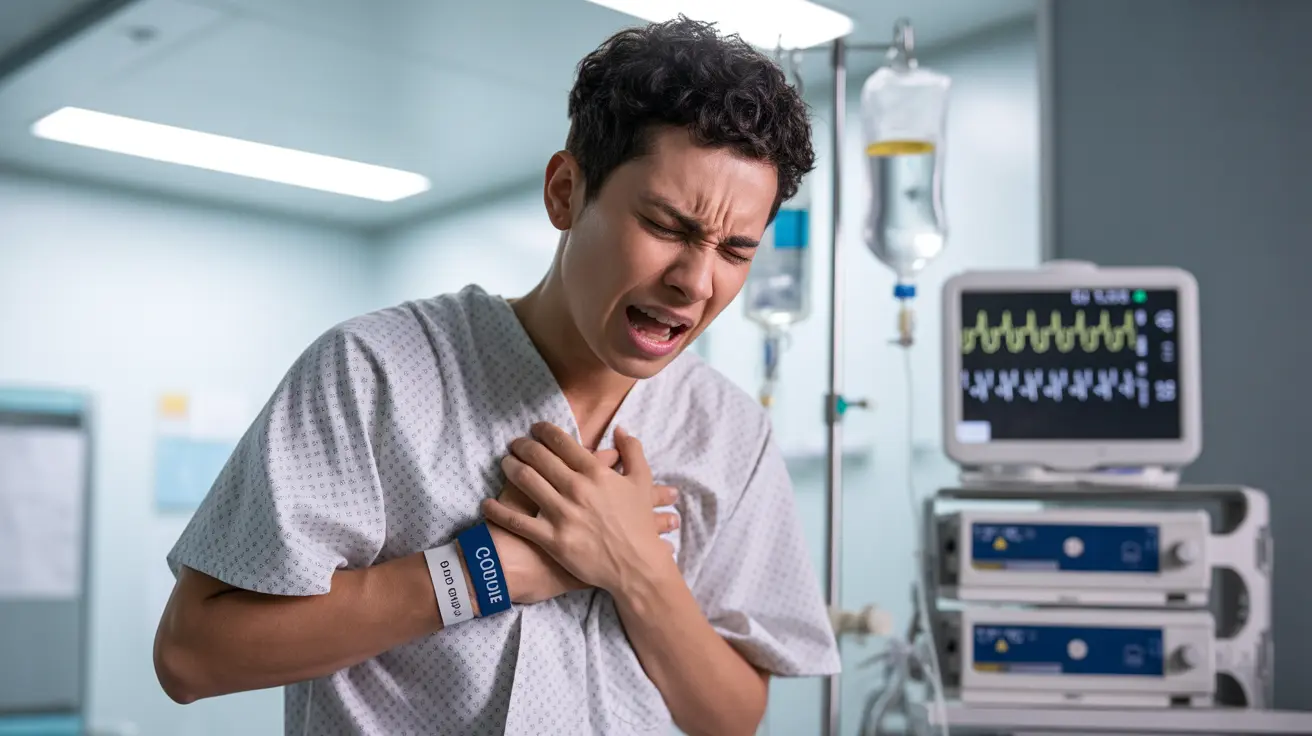Experiencing sudden attacks of coughing that lead to gagging and vomiting can be both distressing and disruptive to daily life. These intense coughing episodes, also known as paroxysmal coughing, can significantly impact your quality of life and may indicate an underlying health condition that requires attention.
In this comprehensive guide, we'll explore the causes, symptoms, and effective management strategies for these severe coughing episodes, helping you understand when to seek medical attention and how to find relief.
Understanding Paroxysmal Coughing Episodes
Sudden attacks of coughing with gagging and vomiting are characterized by intense, uncontrollable coughing fits that can last several minutes. These episodes often occur without warning and may be accompanied by difficulty breathing, facial redness, and exhaustion after the attack subsides.
These severe coughing fits typically differ from regular coughs in their intensity, duration, and associated symptoms. The forceful nature of these coughs can trigger the gag reflex and lead to vomiting, making them particularly challenging to manage.
Common Causes and Triggers
Infectious Causes
Several infections can trigger severe coughing episodes:
- Pertussis (whooping cough)
- Bronchitis
- Upper respiratory tract infections
- Pneumonia
Non-Infectious Causes
Other conditions that may lead to paroxysmal coughing include:
- Asthma
- Allergies
- Gastroesophageal reflux disease (GERD)
- Chronic obstructive pulmonary disease (COPD)
Treatment Approaches
Medical Interventions
Treatment options often depend on the underlying cause and may include:
- Antibiotics (for bacterial infections)
- Bronchodilators
- Anti-inflammatory medications
- Antihistamines (for allergy-related coughs)
Home Management Strategies
Several home-based approaches can help manage symptoms:
- Staying hydrated
- Using a humidifier
- Avoiding trigger substances
- Maintaining proper posture during coughing episodes
Prevention and Risk Reduction
Taking proactive steps to prevent severe coughing episodes is crucial:
- Keeping vaccinations up to date
- Practicing good hand hygiene
- Avoiding exposure to irritants
- Maintaining a healthy lifestyle
- Managing underlying conditions effectively
Frequently Asked Questions
What are the symptoms of paroxysmal coughing and how does it differ from other coughs?
Paroxysmal coughing is characterized by sudden, severe coughing fits that can lead to gagging and vomiting. Unlike regular coughs, these episodes are more intense, often come in clusters, and may be accompanied by a distinctive "whooping" sound when breathing in. The attacks typically last several minutes and can leave you feeling exhausted.
What are the most effective treatments for sudden attacks of coughing with gagging and vomiting?
The most effective treatments include addressing the underlying cause through appropriate medication (such as antibiotics for bacterial infections or inhalers for asthma), staying hydrated, using humidity, and maintaining proper positioning during attacks. In some cases, prescription cough suppressants or other medications may be necessary.
Can paroxysmal coughing be caused by allergies or asthma, and how is it managed in these cases?
Yes, both allergies and asthma can trigger paroxysmal coughing. Management typically involves identifying and avoiding triggers, using appropriate medications (such as antihistamines for allergies or bronchodilators for asthma), and working with healthcare providers to develop an effective treatment plan.
What are some home remedies that can help alleviate paroxysmal coughing episodes?
Effective home remedies include using a humidifier, staying well-hydrated, taking honey (for adults and children over 1 year), using steam inhalation, and maintaining an upright position during coughing fits. Salt water gargles can also help soothe an irritated throat.
How can I prevent or reduce the risk of experiencing severe coughing fits like those associated with whooping cough?
Prevention strategies include staying current with vaccinations (especially pertussis/whooping cough), practicing good hand hygiene, avoiding close contact with infected individuals, maintaining a strong immune system through proper nutrition and rest, and promptly treating any respiratory infections or underlying conditions that could trigger severe coughing episodes.




